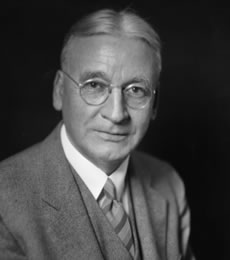Robert W. Hegner, PhD

Robert W. Hegner and his colleagues created the specialty of medical zoology by marrying basic zoology with clinical medicine. Dr. Hegner saw that public health must combine the zoologist, to determine the stages in the life cycle of the parasite, with the physician, to follow the corresponding clinical signs of infections.
Through this approach, the critical host-parasite relationship was defined. Dr. Hegner wrote, "Only when the two phases are brought together and when the aspects of the subject peculiar to public health activities are added is a complete program realized…"
The hub of pathological research in the School was in the Department of Medical Zoology where Robert Hegner was a leading faculty member. Under Dr. Hegner's guidance, the department attacked the disease-producing organisms that caused direct injury to humans.
"From a public health standpoint," Dr. Hegner emphasized, "The most important species of protozoa and helminths are those parasitic and pathogenic to man." As a pure biologist, he attempted to bring out the "instincts of the naturalist" in his students and a hunger for "exploring for new parasitic protozoa."
His own enthusiasm drove him to excursions to catch crocodiles in the Philippines and hunt monkeys in Panama and Costa Rica, all in order to study the species of protozoa they carried. The results of these adventures made Dr. Hegner the sole or senior author of descriptions of 26 new species and two new genera.
Throughout his career, Dr. Hegner built a major teaching and research program on the relation of parasitic protozoa to public health programs, contributing a breadth of knowledge about such diseases as African Sleeping Sickness, Chagas disease, amebic dysentery, intestinal flagellates, and malaria.
